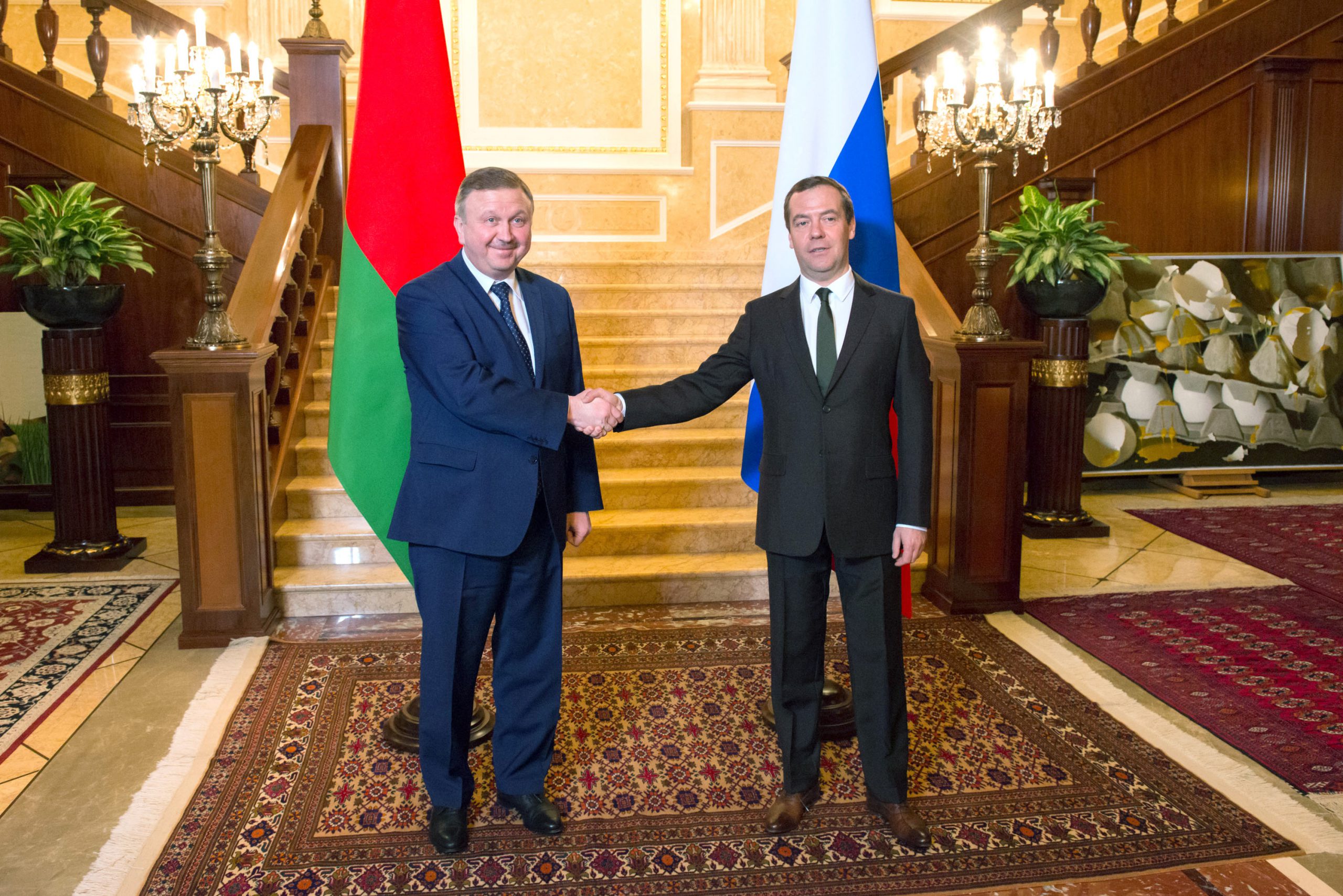Minsk would sign EEU Customs Code if Moscow made concessions on gas
 The situation has not changed
The situation has not changed

Neither Minsk, nor the Kremlin seem to have a decisive advantage in the gas dispute. Apparently, the Kremlin allows Minsk to reduce losses from having fewer benefits from participating in the integration projects without applying pressure to enforce payment of the due debt for the gas supply. Russia is likely to either make some short-term concessions with respect to the due gas debt or lower the price in exchange for Belarus signing the EEU Customs Code.
Belarusian Deputy Prime Minister Semashko has announced a meeting between Presidents Lukashenka and Putin to discuss how to clear exemptions and restrictions within the EEU.
Prime Ministers Kobyakov and Medvedev could not find a mutually acceptable solution in the lingering oil and gas dispute. According to Russia, Belarus’ debt for the supplied gas reached USD 700 million. In the given situation, Belarus’ firm position regarding the price reduction and non-payment for the already supplied gas is due to the fact, that the Kremlin lacks soft instruments to compel Minsk to concessions. In turn, Belarus delays the signing of the EEU Customs Code, which is a sensitive issue for the Russian leadership before the presidential elections in Russia.
Russia’s attempts to tie an increase in the oil supply to Belarusian refineries with making overdue gas payments is likely to be perceived cautiously in Minsk. According to some analysts, Russia had reduced oil supplies to Belarus due to economic reasons and the need to compensate for losses from the construction and launch of the alternative BPS-2 oil pipeline. Apparently, the size of oil supplies to Belarus does not depend on Belarus’ actions; even if the agreement is reached, the restrictions are likely to persist, for example, due to repair works on the pipeline.
In turn, Minsk does not insist on the third tranche of the EFSR loan. In the view of uncertainty over the gas debt and if Moscow insists on the payment, Belarus may never receive the third tranche worth USD 300 million, as it could be used to repay part of Belarus’ debt for supplied Russian gas.
In addition, the Belarusian authorities aspire that the Kremlin is not interested in exacerbating bilateral relations and resuming coercive practices towards its closest ally, including a full-scale information, food, oil and gas war.
In the long term, the disagreements accumulating in the Russo-Belarusian relations over a number of issues – oil, gas, border, and food supplies on the Russian market – would enhance Belarus’ vulnerability to the increased pressure from the Kremlin.
Subscribe to our newsletter




Situation in Belarus
Constitutional referendum: main consequences


 Video
Video
How to count the political prisoners: are the new criteria needed?


 Video
Video
Paternalism In Decline, Belarusian Euroscepticism, And The Influence Of Russia


 Video
Video











